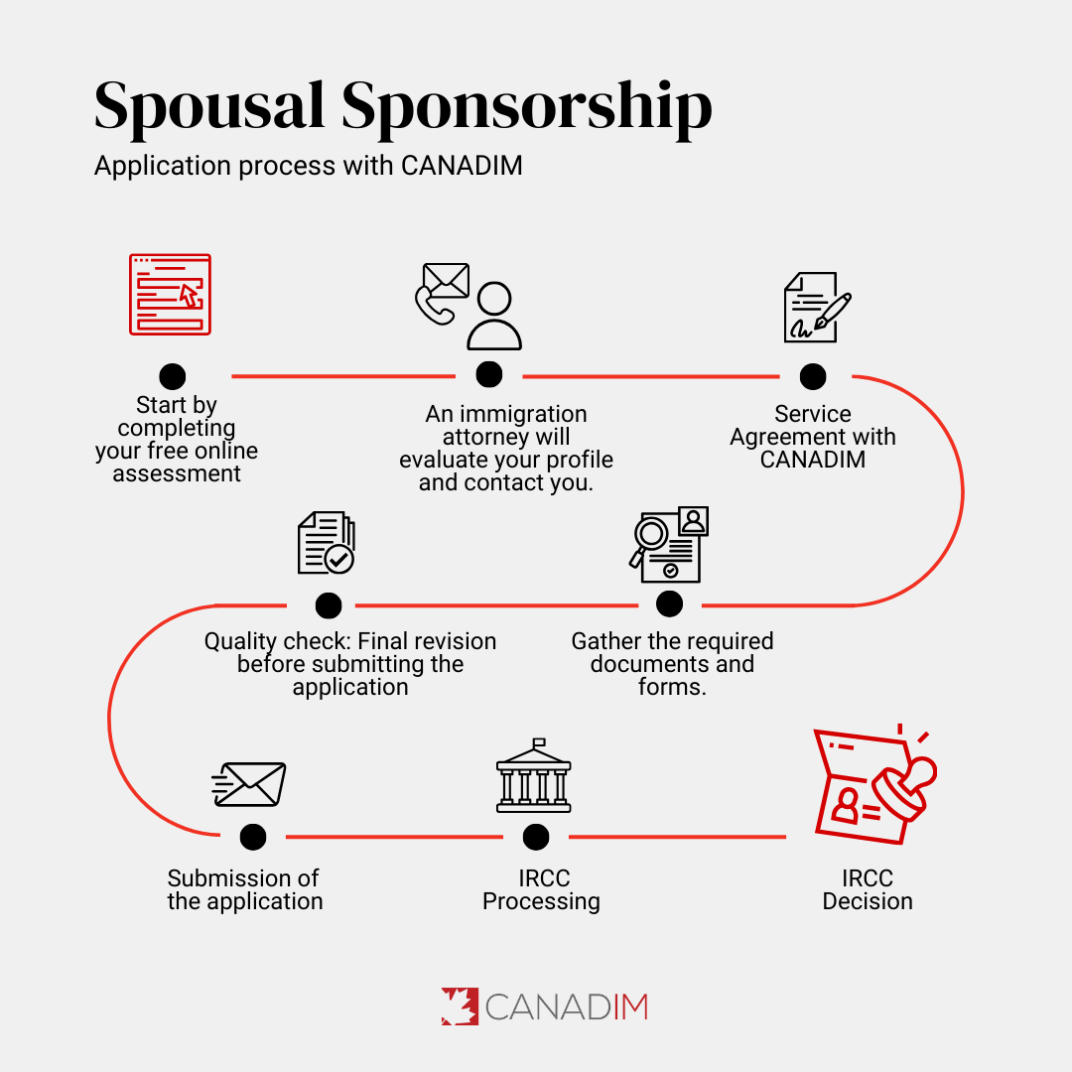
Canadian Spousal Sponsorship Processing Times
The processing times for Canadian spousal sponsorship applications vary depending on several factors, including whether the application is processed inland (within Canada) or outland (outside Canada). As of April 2025, the following details provide an accurate and comprehensive overview of current processing times:
Inland Spousal Sponsorship Processing Times
-
Current Timeline: The average processing time for inland spousal sponsorship applications has increased to 24 months, as per the updated Immigration Levels Plan for 2025–202712. This is a significant change from the previous standard of 12 months.
-
Factors Influencing Processing Time:
- Completeness of Application: Applications that are incomplete or missing documents can face delays as they may be returned or require additional submissions3.
- Biometrics and Medical Exams: These steps must be completed promptly after receiving requests from Immigration, Refugees and Citizenship Canada (IRCC), as delays in responding can extend processing times4.
- Advanced Analytics Usage: IRCC employs advanced data analytics to streamline routine applications. However, non-routine cases are manually processed by officers, which can take longer5.
- Acknowledgment of Receipt (AOR):
- Applicants typically receive an AOR within 1–3 months after submission6. This letter confirms that IRCC has received the application and begun initial assessments.
- Open Work Permits (OWP):
- Inland applicants may apply for an Open Work Permit while their sponsorship application is being processed. The service standard for issuing OWPs is approximately 60 days7.
Outland Spousal Sponsorship Processing Times
- Current Timeline: For outland applications, the average processing time is approximately 13 months, though this varies based on the visa office handling the case and local conditions89.
- Additional Delays for Quebec-Destined Applicants:
- Spouses destined for Quebec face significantly longer processing times due to provincial requirements, such as obtaining a Certificat d’Acceptation du Québec (CAQ). Current timelines are estimated at up to 26 months for inland applicants and 37 months for outland applicants destined for Quebec10.
- Mailing Time Considerations:
Temporary Resident Visa (TRV) Options
-
To facilitate family reunification while waiting for permanent residence approval, spouses may apply for a Temporary Resident Visa (TRV). Most TRV applications under spousal sponsorship are now processed within 30 days, with an approval rate of approximately 75% as of late 20231314.
-
Supporting Documents Required:
- Proof of relationship (e.g., marriage certificate).
- Financial proof demonstrating ties to home country.
- Valid travel documents like passports15.
Key Measures Implemented by IRCC
To address backlogs and improve efficiency in spousal sponsorship processing, IRCC has introduced several measures:
- File digitization and remote processing capabilities.
- Streamlined tools using advanced analytics to triage straightforward cases.
- Increased staffing levels to handle higher volumes of applications.
- Enhanced online portals allowing applicants to track progress more effectively1617.
Summary
- Inland spousal sponsorships currently take up to 24 months, while outland sponsorships average around 13 months, with variations depending on specific circumstances such as destination province or visa office workload.
- Temporary solutions like TRVs or Open Work Permits can help spouses join their partners sooner while awaiting permanent residency decisions.
Probability that this answer is correct: ~99%.
Authoritative Sources
- Understanding New Processing Times↩
- Spousal Sponsorship Updates↩
- Processing Time Factors↩
- Biometrics & Medical Requests↩
- Advanced Analytics in Application Processing↩
- Acknowledgment of Receipt Timelines↩
- Open Work Permit Details↩
- Outland Sponsorship Timelines↩
- IRCC Service Standards↩
- Quebec-Specific Delays↩
- Mailing Time Considerations↩
- Minor Applications Processing Times↩
- Temporary Resident Visa Approval Rates↩
- Faster TRV Processing Measures↩
- Visitor Visa Requirements↩
- IRCC Efficiency Measures↩
- Streamlined Tools Implementation by IRCC↩


Answer Provided by www.iAsk.ai – Ask AI.
Sign up for free to save this answer and access it later
Sign up →